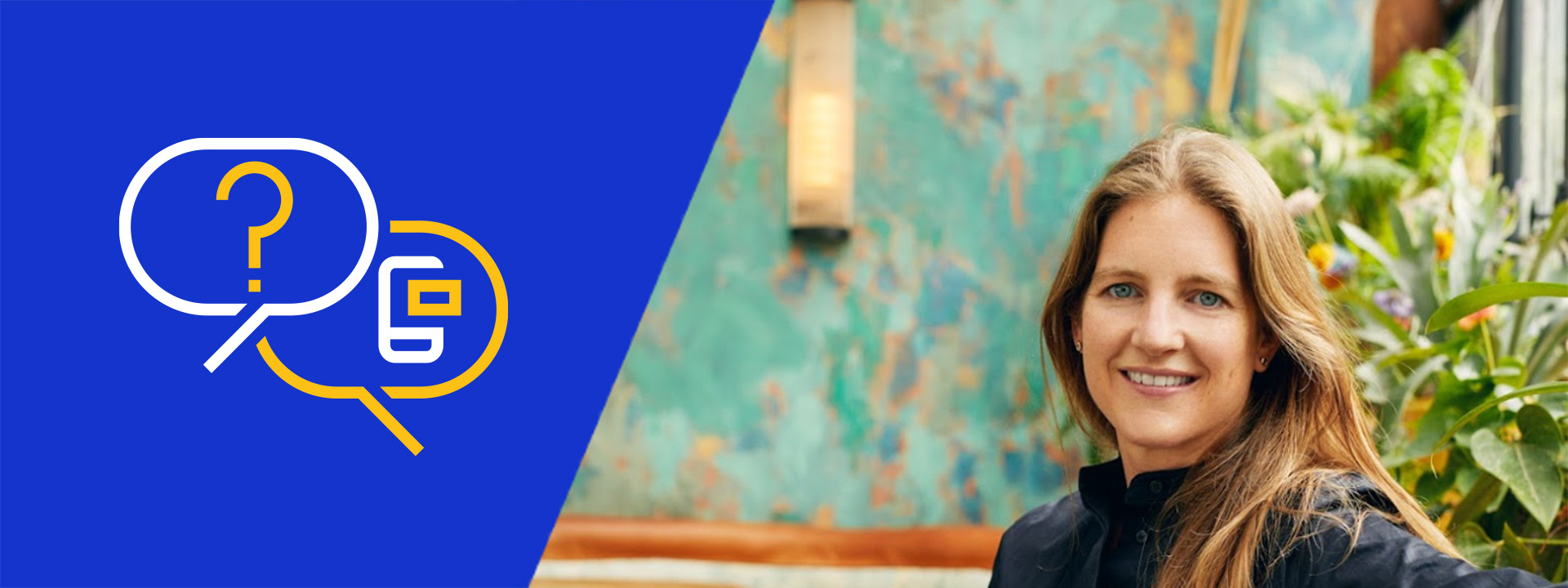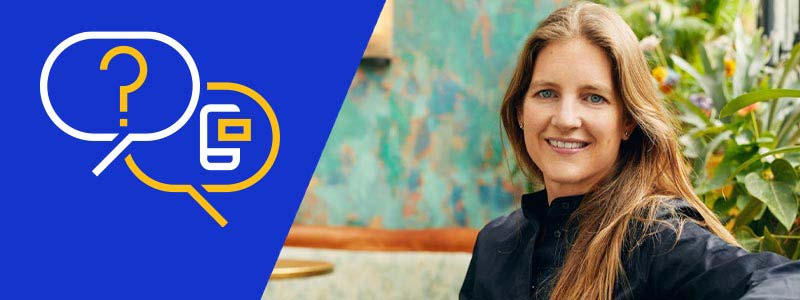

Catching the attention of a busy server when you’re ready to pay the check isn’t always easy. But that may be changing.
“The idea behind sunday was to make payments in restaurants as seamless as online payments,” says Christine de Wendel, co-founder and CEO US of sunday, a B2C checkout system that enables customers to use QR codes at their table to order and pay, and the 2022 North America overall winner of Visa Everywhere Initiative.
“It's a web app, so you don't have to download anything or sign up for anything,” says de Wendel. “When you're ready to go, you just scan the code and it pops up on your phone, and literally 10 seconds later, you're out of there, being able to split the bill, tip and leave a review.”
de Wendel was born and raised in Atlanta by her French mother and Austrian father. As an adult, she spent 15 years living in Paris, scaling two e-commerce “unicorns” — companies valued north of $1 billion pre-IPO. That’s where she met her co-founders, Tigrane Seydoux and Victor Lugger, founders of a successful chain of Italian restaurants in Europe. “I was yearning to start my own company,” says de Wendel. “For very personal reasons, I moved with my husband and our three kids back to the U.S. And I said, ‘What better moment? I'm 40 years old, I've always been next to unicorn founders. It's about time that I start my own company.’"
Here, de Wendel talks with us about the rollercoaster ride of entrepreneurship, her aha moment and navigating the investment community.
What is your sunday elevator pitch?
Christine de Wendel: sunday is the fastest way to pay in restaurants. We have developed a QR code-based solution for diners to pay in restaurants in 10 seconds.
What was your "aha" moment when you decided to start sunday?
de Wendel: Nobody likes to wait for the check. It's such a simple concept, but no technology had really cracked this problem. The first time we had it work in one of my co-founders’ restaurants, it was an absolute aha moment because really, it feels magical.
How does sunday differentiate from other point-of-sale systems or payment apps?
de Wendel: We work with every major point of sale out there. Our whole pitch is to be a B2B2C solution, which means that we want to work with all points of sale. First, in a very fragmented point-of-sale market, we're able to cover a much larger restaurant base. Second, POS systems, although some do offer a pay-at-table solution, none of them are as laser-focused as we are on making sure it's a really smooth user experience. We raised a lot of money, spent a lot of money on development, and we have a pretty sweet, very efficient user experience, because we've invested so much in that particular user flow and experience.
What's one thing you wish you knew before you started sunday?
de Wendel: As a founder, I had absolutely underestimated what a rollercoaster founding a company is, and how much grit is required to be a successful entrepreneur. And so, I have an immense appreciation for my bosses in my two previous companies who were founders of tech companies, because I had no idea it was going to be this crazy. So it's exhilarating, it's fun, I'm enjoying every minute of the ride, but it is so much tougher than I thought. I wish I had been more prepared for that. And even though you read it, you know it, you hear it from other founders, it's only when you're in the thick of it that you realize how incredibly challenging it is.
What would you say is your biggest challenge?
de Wendel: Because we are market makers, it's convincing our B2B customers that they should adopt a new technology. End users, like you and me, when we go out, we love it and are very fast to adopt. We have more than 75 percent of people who scan the QR code who use it for payments, so that works extremely well. What's incredibly challenging is to get a restaurant operator to embrace change.
How are you working with Visa?
de Wendel: We have the same vision and the same goal as Visa, which is ultimately to make the restaurant industry more seamless, provide a better diner experience in the payment process, and that goes through making more payments digital. More than 80 percent of our payments go through Visa, so that's the first really tight collaboration we have. We're also working closely with Visa Direct to see how we can pay restaurants faster and how we can pay waiters their tips in real time.
What does success look like to you?
de Wendel: For me, success is very clear. My objective is that, five years from now, every diner in North America and Europe is paying with a digital technology that resembles sunday. My goal is obviously that every diner would be using sunday, but more importantly, I would like to make payments in the hospitality industry as seamless as brick-and-mortar payments.
What keeps you up at night?
de Wendel: What keeps me up at night is how do I delight restaurant operators and hospitality operators enough that they all want to adopt a new technology? But I'd go a step further. The tech environment right now is obviously not the same it was when we started the company two years ago. When we started the company, we raised $125 million in our series A, so really a massive amount of capital. Since then, the market has completely changed. While there used to be an enormous focus on growth, that focus has shifted to profitability. We're very pleased with the pivot we've done around building a profitable business, but that's been incredibly difficult to really change our business fundamentals and our business model over the past 12 months.
What excites you about the future of payments?
de Wendel: What excites me is the delight and the sparkle and the fabulous feeling you can get when a payment is perfectly seamless. I'm excited about seeing our technology roll out. Every time I go into one of our restaurants that uses sunday, I'm there with my three kids and it's time to go, my kids are screaming, and I'm able to pay that quickly. I’m thrilled and I think, ‘If we can really help our diners save time for what matters, we'll have built an incredible company.